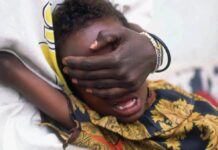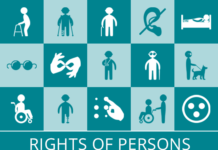Before a parent ends up abusing Child rights, it should be noted that the brain of a new baby remains clean at birth and it is what the parents or caregivers write in it that stays.
Every child learns a bit of behaviour from their parents especially on how to control themselves and exhibiting self-discipline.
So whatever behaviour a child exhibits, pause, look inward, and ask as a parent, when did I do this in front of this child or who taught the child? That is if you are sure the child is not a carbon copy of your behavior when you too were growing up.
Instead of abusing the child of his or her rights, why don’t you try and look for ways to communicate the right behaviour to the child.
NOTE:
- Discipline should never be harmful to a child.
- Severe punishment won’t accomplish your goals, rather, it will do more harm than good.
- For children who have experienced abuse or neglect, aggressive punishment could elicit memories of past trauma.
Experience vs Information: Despite technology, adults are smarter
What discipline is?
Discipline is the act of teaching children the difference between acceptable and unacceptable behaviour. This can be accomplished by talking to children about misbehaviour and requiring children to take responsibility for its consequences. For example, being responsible for cleaning up a mess or apologizing for hurting someone’s feelings.
You also can guide your child by positively reinforcing and encouraging their good behaviours and not just correcting their poor behaviours.
What punishment is?
Punishment is an approach to discipline that can be physical like a slap on the hand or psychological like the loss of TV time, or other freedoms.
A misbehaving child can be frustrating, but using physical force to teach a lesson or relieve aggravation is always wrong.
Psychologically, whatever you do to a child, you might not know the consequence of your action but somehow it stays and it affects that child later in life or as the child grows.
An abused and maltreated child will see differently from a child who was trained in the right way and shown better ways to handle life. This does not mean children cannot be stubborn, but there are better ways to train a child as opposed to inhuman treatments.
According to the Child Rights Act 2003, the goal for promulgating the Child Rights Acts is to improve children’s relationships with their family or community. The Child Rights Acts broadly covers the rights and responsibilities of every child.
So, before you act, make sure you are on the right side of the law.
No one is advocating for an indiscipline child. The country needs children that will uphold Africa values through the right communication channels.
Remember that all children have the right to grow up safe from harm, neglect, and abuse. To grow, develop, and thrive, children need to feel safe and secure.

















